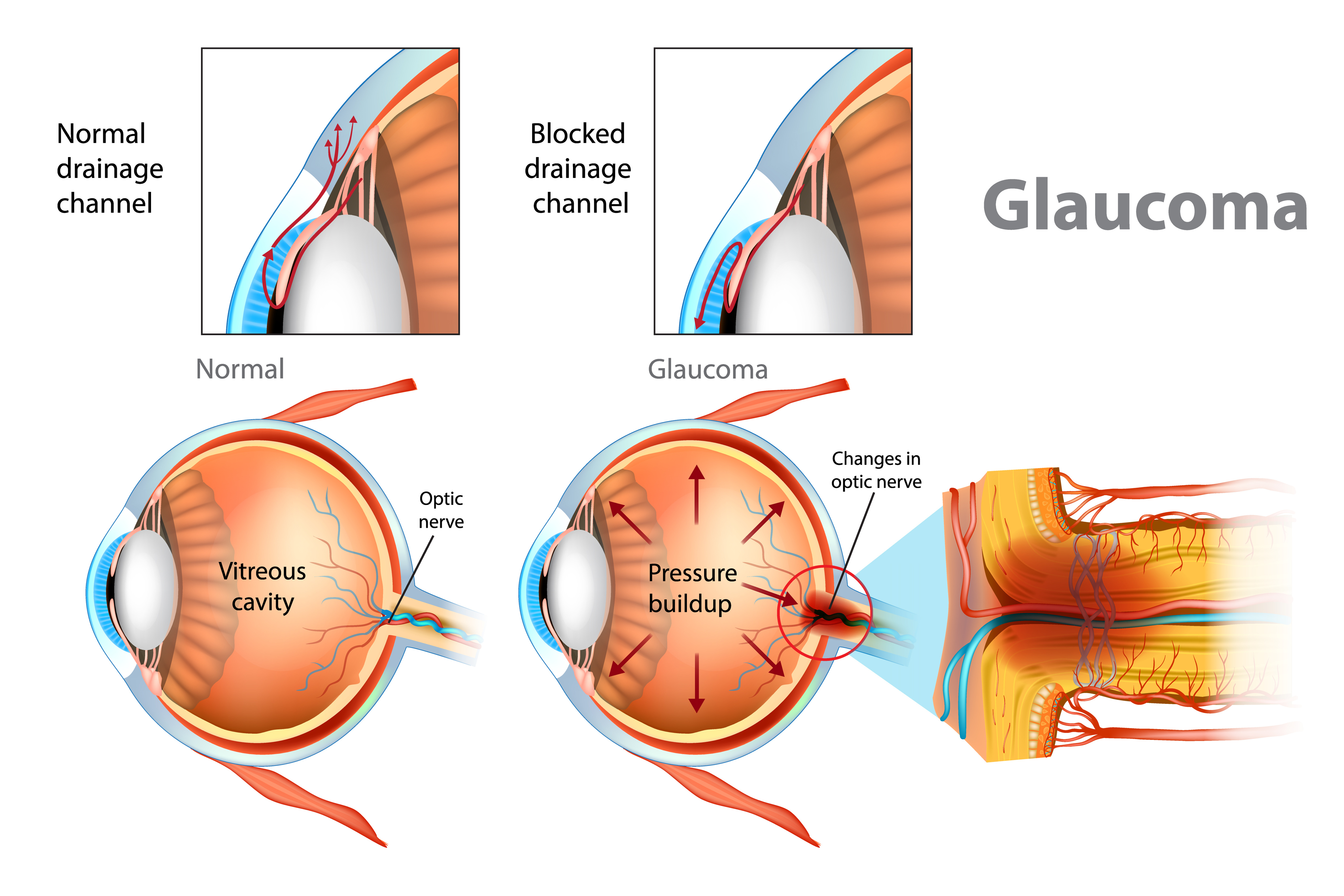Glaucoma is a silent disease with no clear symptoms in its early stages. Often people don’t know they have it until the disease is advanced and much more difficult to treat. This makes Glaucoma one of the greatest risks to eye health. Glaucoma is a very general term for a group of conditions that affect the optic nerve at the back of the eye. Broadly, there are 2 general types: primary open angle glaucoma and primary angle closure glaucoma. While both are under the same glaucoma banner, they have very different processes. Other, rarer types of glaucoma include neovascular, pseudoexfoliation, inflammatory, secondary angle closure and normal tension.
How does Glaucoma affect vision?
Glaucoma causes high pressure inside the eye which damages the optic nerve. The effect is comparable to how high blood pressure damages the cardiovascular system. In its early stages the nerve damage may not affect sight, but as the condition progresses peripheral vision will deteriorate, resulting in tunnel vision. Eventually central vision can be affected, leading to severe visual loss and even blindness.
Screening for glaucoma
Some or all of the following tests might be required for a glaucoma diagnosis:
- Measure eye pressure – glaucoma will often present with elevated pressure, also known as intra-ocular pressure (IOP)
- Drainage angle outflow – This test can determine if high eye pressure is caused by a closed or blocked angle (angle closure glaucoma) or if the angle is open but just not working well enough (open angle glaucoma)
- Visual field test– a computer test which maps out the extent of central and peripheral vision.
- Imaging of the optic nerve to determine any damage.
- Measure corneal thickness – measures the thickness of the front window of the eye (cornea).
Treating glaucoma
To date there is no known cure for glaucoma. Nonetheless, eye health research has led to an exponential increase in highly effective treatment options for glaucoma patients. This allows for a more tailored approach for individuals and offers alternatives when a patient doesn’t respond to an initial treatment.
Primary Open Angle Glaucoma
The eye has a pump generating clear fluid inside the eye and a drain to remove it. The pump and drain should work in balance to keep the pressure inside the eye level. In primary open angle glaucoma there is a mismatch between these functions. This mismatch causes the pressure in the eye to increase. Over time this raised pressure damages the optic nerve and affects vision.
Treatments for this type of glaucoma include eyedrops, laser therapy, Minimally Invasive Glaucoma Surgery (MIGS), micro-stents and filtering surgery.
Primary Angle Closure Glaucoma
The eye has a pump that makes the clear fluid inside the eye and a drain that drains it away. There is a pathway that this fluid must pass along for the process to remain in balance.
In primary angle closure glaucoma the pathway between the pump and the drain becomes blocked which can lead to an aggressive and rapidly blinding condition called primary angle closure crisis or acute angle closure.
Laser treatment and lens extraction and replacement surgery can be extremely effective at controlling and even curing the condition. It is rare to need eye drops for this type of glaucoma.
This content has been medically reviewed by Dr Geoffrey Ryan and is for information purposes only. Consult a medical professional for advice.
